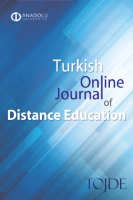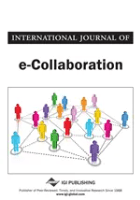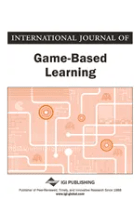
International Journal of Mobile and Blended Learning
Scope & Guideline
Navigating the New Frontier of Mobile Learning Solutions
Introduction
Aims and Scopes
- Mobile Learning Integration:
The journal emphasizes research on how mobile technologies can be effectively integrated into various educational settings to support learning processes and outcomes. - Blended Learning Methodologies:
Research on blended learning approaches is a core focus, examining how traditional and online learning can be combined to improve educational experiences. - Educational Design Frameworks:
The journal promotes the development and evaluation of educational design frameworks that facilitate cross-disciplinary learning and collaboration. - Self-Regulated Learning:
A significant area of interest is self-regulated learning, particularly how mobile and blended learning environments can support students in managing their own learning processes. - Technology-Enhanced Learning:
The exploration of technology-enhanced learning tools, such as mobile applications, augmented reality, and online platforms, is a consistent theme, highlighting their impact on teaching and learning. - Digital Literacy Development:
The journal also addresses the importance of developing digital literacy among students and educators, focusing on how technology can be utilized for effective learning and teaching.
Trending and Emerging
- Self-Organised Learning Environments (SOLE):
Recent publications indicate a growing interest in self-organised learning environments, particularly how mobile devices can facilitate learner autonomy and engagement. - Augmented Reality in Education:
There is an emerging trend of exploring augmented reality as a tool for enhancing learning experiences, particularly in language learning and curriculum design. - Gamification and Game-Based Learning:
The integration of gamification elements in educational contexts is gaining traction, with studies highlighting its effectiveness in improving student motivation and learning outcomes. - Dynamic and Formative Assessments:
An increasing focus on dynamic assessment methodologies reflects a trend towards understanding how ongoing feedback and support can enhance student learning in mobile contexts. - Culturally Responsive Learning Technologies:
Research is increasingly addressing the development of educational technologies that are culturally responsive, particularly for indigenous and diverse learner populations. - Collaborative and Social Learning Environments:
Emerging themes include the exploration of collaborative learning through mobile technologies, emphasizing the role of social interaction in enhancing learning outcomes.
Declining or Waning
- Traditional Classroom Practices:
There appears to be a diminishing focus on conventional teaching methods without the integration of technology, as the trend shifts towards more innovative and technology-driven pedagogies. - General E-Learning Frameworks:
Research centered around generic e-learning frameworks is becoming less prominent, with a more concentrated effort on specific mobile and blended learning strategies. - Physical Learning Environments:
The emphasis on physical classroom environments has decreased, as more studies explore virtual and hybrid learning contexts, reflecting a shift in educational paradigms. - Static Assessment Methods:
There is a noticeable decline in research focusing on traditional assessment methods, as the journal increasingly highlights dynamic and formative assessment strategies in mobile and blended contexts. - Non-Digital Literacy Skills:
Research on non-digital skills or literacies is waning, as the focus increasingly shifts to the integration of digital tools and technologies in educational practices.
Similar Journals

Pixel-Bit- Revista de Medios y Educacion
Fostering Global Dialogue in Media and EducationPixel-Bit: Revista de Medios y Educación is an esteemed academic journal published by UNIV SEVILLA, EDITORIAL, dedicated to advancing the fields of media and education through rigorous research and insightful analysis. With its Open Access policy established in 2010, the journal ensures that the latest findings and methodologies are readily accessible to researchers, professionals, and students worldwide. Operating from Seville, Spain, Pixel-Bit has been recognized for its significant impact within its respective fields, achieving Q2 and Q3 rankings in multiple categories such as Computer Networks and Communications, Computer Science Applications, Education, and Information Systems as of 2023. Its Scopus rankings further reflect its influence, with notable placements in the 83rd percentile in Social Sciences - Education. This journal serves as a pivotal platform for disseminating knowledge, fostering innovative practices, and bridging the gap between technology and pedagogy in an increasingly digital world.

Turkish Online Journal of Distance Education
Transforming Challenges into Opportunities in Distance Education.Turkish Online Journal of Distance Education, a distinguished publication from ANADOLU UNIVERSITY, serves as a vital resource in the field of distance education, contributing significantly to the ongoing discourse since its inception in 2000. With an impressive impact factor that reflects its standing within the academic community, this open access journal provides an influential platform for researchers, educators, and practitioners to disseminate innovative findings and educational strategies. Ranked in the Q2 category within the education sector according to the 2023 quartile rankings, and boasting a commendable position of #423 out of 1543 in Scopus' Social Sciences Education rankings, the journal places itself firmly within the 72nd percentile of its cohort. Spanning from 2004 to 2024, the journal's commitment to advancing scholarship in distance education is reflected not only in its comprehensive articles but also in its responsive engagement with contemporary educational challenges. Positioned in Eskişehir, Turkey, this journal aims to elevate discussions surrounding online learning and contributes to the global dialogue on education accessibility and innovation.

Journal of Teaching and Learning
Advancing educational excellence through innovative research.The Journal of Teaching and Learning, published by the University of Windsor, Faculty of Education, is a prominent open-access journal in the field of education, dedicated to fostering scholarly discussion and exploration. Since its inception in 2001, it has served as a vital platform for researchers, educators, and practitioners to share innovative insights and evidence-based practices that advance teaching and learning methodologies. With an impact factor reflective of its category quartiles, it currently ranks in the Q3 category for education according to the 2023 evaluation, standing at 834 out of 1543 in Scopus's social sciences education rankings. This journal aims to bridge theoretical frameworks with practical applications, providing a robust resource for those invested in enhancing educational outcomes. With an open-access model, the Journal of Teaching and Learning ensures that its contributions are readily accessible to a global audience, encouraging the dissemination of knowledge and collaborative learning experiences. The journal is published in Canada and welcomes submissions that explore current trends and future directions in teaching practices, learner engagement, and educational policy.

Revista Electronica Calidad en la Educacion Superior
Pioneering Insights for Educational ReformRevista Electronica Calidad en la Educacion Superior is a prominent academic journal dedicated to advancing research in the field of higher education quality. Published by UNIV ESTATAL DISTANCIA, this journal serves as a vital platform for scholars, educators, and practitioners who are committed to enhancing the standards and effectiveness of higher education in Latin America and beyond. The journal emphasizes the dissemination of innovative ideas and practices that contribute to educational excellence. Although it operates under an open-access model, the available content can be freely accessed by researchers and interested readers to foster wider dissemination and engagement within the academic community. With its headquarters in San Pedro Montes Oca, San Jose, Costa Rica, this journal aims to bridge the gap between theory and practice, providing insights and empirical studies that help shape policy and reform in higher education. As educators and researchers increasingly focus on quality assurance and improvement in educational systems, Revista Electronica Calidad en la Educacion Superior stands out as an essential resource for aligning current practices with emerging trends and challenges in the sector.

International Journal of e-Collaboration
Exploring the Future of Digital PartnershipsInternational Journal of e-Collaboration (ISSN: 1548-3673, E-ISSN: 1548-3681), published by IGI Global, is an influential academic journal dedicated to exploring the dynamic field of collaboration facilitated by electronic means. With a focus spanning from 2005 to 2024, this journal addresses critical aspects of e-collaboration within the realms of Computer Networks and Communications and Computer Science Applications, which are reflected in its current Scopus rankings. Though categorized in the lower quartiles (Q4) for both areas as of 2023, the journal provides a vital platform for researchers and professionals to disseminate and discuss innovative ideas and methodologies, contributing meaningfully to ongoing dialogues in these fields. As the demand for effective electronic collaboration continues to rise in both academia and industry, the International Journal of e-Collaboration remains a significant resource for those seeking to enhance their understanding and application of collaborative technologies. While not an open access publication, it offers a wealth of knowledge and insights that are crucial for academics, practitioners, and students alike in fostering successful collaborative environments.

Journal of Information Technology Education-Research
Advancing Knowledge in Information Technology EducationThe Journal of Information Technology Education-Research, published by the Informing Science Institute, stands as a pivotal resource in the field of educational technology and computer science. With an ISSN of 1547-9714 and an impressive E-ISSN of 1539-3585, this journal aims to disseminate high-quality research and innovative practices that enhance the integration of information technology in educational contexts. It has achieved commendable rankings, notably Q2 in Computer Science (miscellaneous), Q1 in Education, and Q2 in E-learning for the year 2023, reflecting its significance and impact in these domains. Within the Scopus metrics, it ranks #178 out of 1543 in Social Sciences Education and #50 out of 232 in General Computer Science, positioning it in the top percentiles of its fields. This journal is dedicated to fostering scholarly discourse and providing a platform for educators, researchers, and professionals to share their findings and insights, contributing to the advancement of knowledge and practices in information technology education. The journal covers research from 2011 to 2024, ensuring a comprehensive collection of contemporary studies that engage with current trends and challenges in IT education. For scholars seeking an open-access platform to disseminate their work, this journal presents an invaluable option to engage with a broad academic audience.

E-Learning and Digital Media
Redefining learning experiences through digital media.E-Learning and Digital Media, published by SAGE Publications Inc, is a premier academic journal dedicated to the innovative intersection of digital technologies and education. With a strong commitment to advancing research in the fields of education and computer science, this journal has established itself as a vital resource for researchers, professionals, and students alike. As of 2023, it proudly holds a Q2 ranking in both Computer Science Applications and Education, reflecting its impact and reach within the academic community. The journal encompasses a wide range of topics exploring the effectiveness and applications of e-learning technologies, pedagogical strategies, and digital media in educational settings. Since its inception in 2009, E-Learning and Digital Media has continuously contributed to the understanding and development of digital education, ensuring relevancy in an ever-evolving landscape. With an open access model intended to foster accessibility and dissemination of knowledge, this journal invites submissions that push the boundaries of traditional education through cutting-edge research and practice.

Technology Pedagogy and Education
Elevating Educational Standards through Technology IntegrationTechnology Pedagogy and Education, published by Routledge Journals, Taylor & Francis Ltd, is a leading academic journal focused on the intersection of technology and educational practices. With an impact factor reflecting its significant contribution to the field, this journal provides a critical platform for disseminating innovative research and emerging trends in technology-enhanced learning. Serving as a resourceful hub since its inception in 2003, it has established itself in the top quartile of various categories, including Communication, Computer Science Applications, Education, and Information Systems. Researchers and educators alike will find the journal's insights invaluable as they navigate the ever-evolving landscape of educational technology. Although it does not currently offer open access options, its rigorous peer-review process ensures that only the highest quality research is published, making it essential reading for anyone invested in the educational sector.

International Journal of Game-Based Learning
Transforming Education Through Playful InnovationThe International Journal of Game-Based Learning serves as a vital platform for the exploration and dissemination of research focused on the intersection of gaming, education, and psychology. Published by IGI GLOBAL, a well-respected name in academic publishing, this journal seeks to provide valuable insights and innovative strategies that harness the educational potential of game-based learning. With a 2023 impact factor reflecting its growing influence—ranking in the Q3 category for Developmental and Educational Psychology and Education—this journal is essential for researchers and practitioners eager to bridge theory and practice through gamification. The journal is indexed in renowned databases such as Scopus, ranking in the 67th percentile for Social Sciences - Education and 51st percentile for Developmental and Educational Psychology, making it an anchor for scholarly contributions in these fields. By facilitating access to cutting-edge research, the International Journal of Game-Based Learning purports to redefine educational methodologies in an increasingly digital world.

Pegem Egitim ve Ogretim Dergisi
Nurturing Knowledge for the Evolving ClassroomPegem Egitim ve Ogretim Dergisi is a prominent academic journal published by PEGEM AKAD YAYINCILIK EGITIM DANISMANLIK HIZMETLERI TIC LTD STI, specializing in the field of education. Based in Turkey, this journal offers a platform for scholarly discourse, catering to both emerging and established researchers in the educational domain. With its ISSN 2148-239X, the journal aims to provide insights into contemporary educational practices, pedagogical innovations, and research findings that influence teaching and learning. Although classified in the Q4 quartile of the education category as of 2022 and achieving a Scopus rank of 1178 out of 1469, it remains a valuable resource for practitioners and academics alike. The journal ceased Scopus coverage in 2023, yet it continues to be a relevant outlet for educational research in Turkey and beyond. While it operates under traditional access models, the potential for collaborative research and knowledge sharing makes it a noteworthy choice for those engaged in the evolving landscape of education.